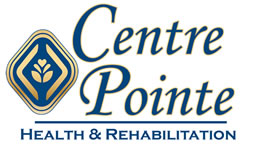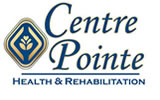Key Takeaways
- Lymphedema is a chronic condition characterized by swelling, primarily in the limbs, due to a compromised lymphatic system.
- The condition can significantly impact daily life, causing discomfort, restricted movement, and emotional distress.
- Centre Pointe Rehab offers personalized treatment plans utilizing a range of therapies such as manual lymphatic drainage, compression therapy, and targeted exercise programs.
- Success in lymphedema management is measured by reduced swelling, improved mobility, and enhanced quality of life.
- Centre Pointe Rehab’s lymphedema program is distinguished by its comprehensive care approach and expert team dedicated to patient recovery.
What Is Lymphedema and Its Impact on Daily Life
Lymphedema might not be a household name, but for those affected by it, it’s a daily reality that can be quite challenging. Imagine your arm or leg swelling to twice its normal size, making simple tasks like tying your shoes or reaching for a cup on a high shelf difficult. That’s what living with lymphedema can be like. It’s not just about the physical discomfort, either; the condition can also take a toll emotionally, making it tough to maintain a positive outlook.
Understanding what lymphedema is can be the first step toward better management. It’s a condition where fluid, called lymph, doesn’t drain properly, leading to swelling. This can happen when the lymphatic system is damaged or blocked—something that might occur after surgery, radiation treatments for cancer, or due to genetic conditions.
Understanding Lymphedema and Its Causes
So, why does lymphedema happen? The lymphatic system is part of your immune system; it helps to fight infection and balances fluid levels in the body. When it’s not working right, fluid builds up, and that’s when you see swelling. Causes can range from cancer treatments that remove or damage lymph nodes to inherited conditions that affect the lymphatic system’s development.
The Physical and Emotional Toll of Living with Lymphedema
Living with lymphedema isn’t easy. The swelling can be uncomfortable and even painful. It can make moving around a lot harder, which might mean you can’t do things you used to enjoy. Besides that, there’s the emotional side of things. Dealing with a visible condition can make you self-conscious, and the ongoing nature of lymphedema can lead to frustration and even depression.
But here’s the thing: with the right support and treatment, you can manage lymphedema and keep doing the things you love. That’s where Centre Pointe Rehab comes in.
Comprehensive Care at Centre Pointe Rehab
At Centre Pointe Rehab, we get that every person with lymphedema is unique, and so are their treatment needs. That’s why we start with a personalized treatment plan for each patient. We look at the whole picture—your medical history, your lifestyle, and your goals—to come up with a plan that’s just for you.
Personalizing Your Lymphedema Treatment Plan
We’ll sit down with you and chat about what you want to achieve with treatment. Maybe you’re looking to reduce swelling, get back to gardening, or just feel more comfortable day-to-day. Whatever your goals, we’ll tailor your treatment to help you get there.
Expert Team and Advanced Treatment Techniques
Our team at Centre Pointe Rehab isn’t just experienced; they’re passionate about helping you improve. We use the latest treatment techniques, from gentle massages that encourage lymph flow to special bandages that help reduce swelling. Most importantly, we’re here to support you every step of the way, because we know that’s what makes all the difference.
But it’s not just about what we do in the clinic. We’ll also show you things you can do at home to help manage your lymphedema. That way, you’re in control of your condition, and you can keep making progress, even when you’re not here with us.
Treatment Approaches for Lymphedema Management
When it comes to treating lymphedema, there’s no one-size-fits-all solution. It’s all about finding the right combination of therapies to manage symptoms and improve quality of life. At Centre Pointe Rehab, we focus on a multi-faceted approach that addresses the physical aspects of lymphedema as well as the overall well-being of our patients.
Manual Lymphatic Drainage: Gentle Massage for Lymph Flow
One of the cornerstones of lymphedema treatment is manual lymphatic drainage (MLD). This is a type of massage that helps move excess lymph fluid out of the affected area and back into circulation. It’s not like your typical massage; it’s a gentle technique that requires specialized training. Our therapists use precise, rhythmic movements to encourage the natural drainage of the lymphatic system, which can reduce swelling and improve comfort.
Compression Therapy: Key to Reducing Swelling
Alongside MLD, compression therapy plays a crucial role. This involves wearing specially designed garments that apply consistent pressure to the swollen limb. The pressure helps prevent the accumulation of lymph fluid. We’ll measure you for custom-fitted compression garments and teach you how to use them effectively as part of your daily routine. It’s a simple yet powerful tool in keeping lymphedema under control.
Exercise Programs: Tailoring Activities to Encourage Lymphatic Drainage
Exercise is another vital component of lymphedema management. But not just any exercise will do; it needs to be the right type to support lymph flow without causing additional strain. We design exercise programs that are tailored to each patient, focusing on gentle movements that can help reduce swelling and improve mobility. These might include light aerobics, swimming, or specific exercises that you can do at home or in the pool.
Skin Care and Diet: Protecting against Infections and Enhancing Treatment
Good skin care and a balanced diet are also important in managing lymphedema. Keeping the skin clean and moisturized can help prevent infections, which can worsen lymphedema. We’ll guide you on the best practices for skin care and recommend dietary changes that can support your treatment, like reducing salt intake to help minimize fluid retention.
Advanced Options: Exploring Surgery and Laser Therapy
For some patients, surgery or laser therapy may be options to consider. These advanced treatments can sometimes reduce the volume of the affected limb or improve the function of the lymphatic system. We’ll discuss the potential benefits and risks with you to determine if these treatments could be a part of your personalized care plan.
Measuring Success: Outcomes of Lymphedema Treatment
How do we know if the treatment is working? It’s all about tracking progress and outcomes. At Centre Pointe Rehab, we use a variety of methods to monitor how well your treatment is going, from measuring the limb’s volume to assessing your pain levels and ability to carry out daily activities.
Success isn’t just about reducing swelling; it’s about enhancing your overall well-being. That means looking at how treatment is improving your mobility, your comfort, and your confidence in managing lymphedema.
Tracking Improvements: From Reduced Swelling to Increased Mobility
We celebrate every victory, big or small. Whether it’s a noticeable reduction in swelling or the ability to walk further without discomfort, each improvement is a step towards better health. By regularly assessing your progress, we can adjust your treatment plan to ensure you’re getting the most benefit.
Maintaining Gains: Long-Term Strategies for Keeping Lymphedema in Check
Managing lymphedema is a lifelong journey, and we’re here to support you every step of the way. We’ll equip you with long-term strategies to maintain your gains, from continuing with compression therapy to staying active and vigilant with skin care. Our goal is to empower you with the knowledge and tools you need to take charge of your lymphedema and live life to the fullest.
FAQs
When it comes to lymphedema treatment, patients often have many questions. Here are some of the most common ones we hear at Centre Pointe Rehab, along with our answers.
FAQs
When it comes to lymphedema treatment, patients often have many questions. Here are some of the most common ones we hear at Centre Pointe Rehab, along with our answers.
- What makes Centre Pointe Rehab’s lymphedema program unique?
- How long does it take to see improvements in lymphedema symptoms?
- Can lymphedema be completely cured with treatment?
- What are some at-home practices to complement lymphedema treatment?
- Does insurance typically cover lymphedema treatment programs?
What Makes Centre Pointe Rehab’s Lymphedema Program Unique?
Our lymphedema program is unique because we take a holistic and personalized approach to care. We understand that lymphedema affects more than just your physical health—it impacts your emotional and mental well-being too. Our team of specialists works closely with each patient to create a tailored treatment plan that addresses all aspects of their condition. Additionally, we offer a range of therapies and have a strong focus on education, empowering patients to manage their lymphedema confidently and effectively.
How Long Does It Take to See Improvements in Lymphedema Symptoms?
Improvements in lymphedema symptoms can vary widely from person to person. Some patients may notice changes within a few weeks of starting treatment, while for others, it may take longer. The key to success is consistency and adherence to the treatment plan. We work with patients to set realistic goals and celebrate every step of progress, no matter how small it may seem.
Can Lymphedema Be Completely Cured with Treatment?
Currently, there is no cure for lymphedema. However, with proper treatment and self-care, symptoms can be managed effectively, and the impact of the condition on daily life can be minimized. Our goal at Centre Pointe Rehab is to help patients achieve the best possible control of their symptoms, improve their quality of life, and prevent complications.
What Are Some At-Home Practices to Complement Lymphedema Treatment?
There are several practices patients can do at home to complement their lymphedema treatment, including:
- Performing prescribed lymphedema exercises to promote lymph flow.
- Applying compression garments correctly to manage swelling.
- Practicing good skin care to prevent infections.
- Maintaining a balanced diet and staying well-hydrated.
- Being mindful of the affected limb, avoiding tight clothing, and protecting it from cuts and scratches.
Does Insurance Typically Cover Lymphedema Treatment Programs?
Many insurance plans do cover lymphedema treatment, but coverage can vary. We recommend patients check with their insurance provider to understand their benefits. Our staff at Centre Pointe Rehab can also assist with insurance questions and help patients navigate their coverage options.

